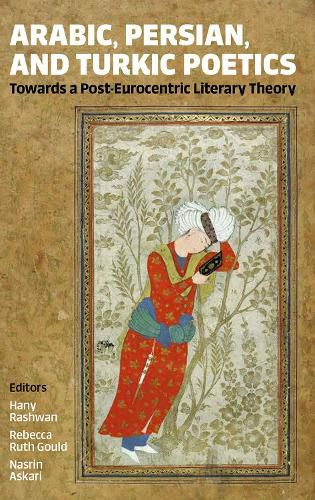Readings Newsletter
Become a Readings Member to make your shopping experience even easier.
Sign in or sign up for free!
You’re not far away from qualifying for FREE standard shipping within Australia
You’ve qualified for FREE standard shipping within Australia
The cart is loading…






Arabic, Persian, and Turkic Poetics: Towards a Post-Eurocentric Literary Theory is a pioneering book that offers a fresh perspective on Arabic, Persian, and Turkic literature in their interrelations. The authors challenge Eurocentric paradigms while creating a framework for exploring these traditions on their own terms. Authored by an international team of scholars, each chapter centres the literary theoretical traditions of their respective literatures, with a focus on the discipline of comparative poetics ('ilm al-balāgha) in the Islamic world. By liberating the study of Islamicate literary texts from Eurocentric theoretical paradigms, the book paves the way for a more inclusive global discourse in literary studies. Specifically, our theoretical roots in comparative poetics and the rhetorical traditions of Arabic, Persian, and Turkic literatures will foster new methods of close reading that are in line with the aesthetic standards intrinsic to these texts and their traditions. Engaging and insightful, this book is essential reading for anyone interested in broadening their understanding of world literature and literary theory.
$9.00 standard shipping within Australia
FREE standard shipping within Australia for orders over $100.00
Express & International shipping calculated at checkout
Arabic, Persian, and Turkic Poetics: Towards a Post-Eurocentric Literary Theory is a pioneering book that offers a fresh perspective on Arabic, Persian, and Turkic literature in their interrelations. The authors challenge Eurocentric paradigms while creating a framework for exploring these traditions on their own terms. Authored by an international team of scholars, each chapter centres the literary theoretical traditions of their respective literatures, with a focus on the discipline of comparative poetics ('ilm al-balāgha) in the Islamic world. By liberating the study of Islamicate literary texts from Eurocentric theoretical paradigms, the book paves the way for a more inclusive global discourse in literary studies. Specifically, our theoretical roots in comparative poetics and the rhetorical traditions of Arabic, Persian, and Turkic literatures will foster new methods of close reading that are in line with the aesthetic standards intrinsic to these texts and their traditions. Engaging and insightful, this book is essential reading for anyone interested in broadening their understanding of world literature and literary theory.